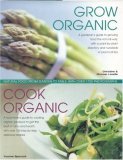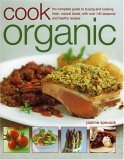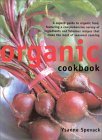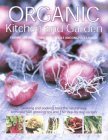Bringing the Food Economy Home
by Helena Norberg-Hodge, Todd Merrifield and Steven Gorelick
(ISEC, www.isec.org.uk)
review by Tracy Worcester
Bringing the Food Economy Home provides an eye-opening analysis of the problems caused by the globalised industrial food economy. As the writers point out, this system is only possible because of a whole range of hidden subsidies, and ‘it is giving us food that is neither very flavourful nor nutritious, at a price that includes depleted soil, poisoned air and water and a destabilised global climate’. In addition, livelihoods and communities in both the North and South are being destroyed as farmers are pitted against farmers to produce for giant food corporations. Our food economy, in the stranglehold of agribusiness and supermarkets, is ‘absurdly inefficient’ with many examples of Britain annually importing roughly the same amount of food as it exports. Only through massive subsidies can chemical and energy intensive food carted round the globe be competitive with a local food economy. The consumer pays four times: once at the supermarket till, again through taxes to help farmers compete with the artificially low prices in the global economy, again through taxes to build energy and transport infrastructure and again for the exorbitant clean-up costs for both pollution and human ailments. By not internalising the true costs, large industrial farms and supermarkets that depend on carting their chemical-intensive produce around the globe, thrive. The small farms, however, cannot compete and across the globe are going bankrupt. At our peril we are ignoring the damage this system causes to food security.
The solution, the writers suggest, lies in relocalising the food economy. This would be achieved by changing the regulations imposed in response to problems related to large-scale production and processing so as not to penalise the smaller producer. Also, to help small local businesses compete, we need to redirect subsidies (hidden and direct), tax breaks and investment in R&D that presently favour global trade. As the external costs are included in the price, so chemical, capital and energy intensive food will be more expensive than local. Eventually all subsidies can go because we would have a truly level playing field and real free markets.
As smaller farms providing for the local market generally use fewer chemicals and have a more diverse range of crops, there are benefits for consumers, rural communities, local economies and the environment. Buying direct from the farmer ensures they receive a decent price, and consumers not only pay less but can regain confidence in the food they buy. Most of the livestock diseases and food contaminants will go when large-scale production and processing are replaced by a local food economy. Our health also improves as fresh food retains higher vitamin content and chemical preservatives can be avoided. At the same time we are freeing people in the third world to use their land and energy to provide food for themselves first and only export the excess under strict ‘fair trade’ conditions.
As the writers conclude, the shift towards the local is already happening with immense benefits for the farmer, consumer and environment. However, ‘There is much work to be done. The time to start is now’. The first thing to do is read this book.
Bringing the Food Economy Home is available at the reduced price of £9.99 from:
ISEC
Foxhole
Dartington
Devon TQ9 6EB
Tel: 01803 868650
Fax: 01803 868651
Email: info@isec.org.uk
Web: www.isec.org.uk
Like this page? Please link to us and let the world know!









